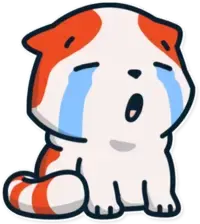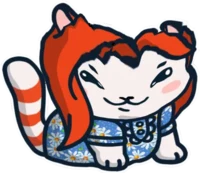Pibblesit/its
I eat children 1yr ago#5434787
Edited 1yr ago
spent 0 currency on pings
Just read "Out of the Silent Planet" by CS Lewis. Short and sweet, a fun depiction of an alien planet and the several strange species that live there. The linguist protagonist slowly becomes open to the people and ideas of this new world, while the two antagonists are stuck seeing things in a very human frame. Some of the last few chapters had me laughing out loud and tearing up just a few pages apart. Still, Lewis can never really escape religious allegory, and he's a bit of an agendaposter.
OotSP made an interesting pairing with the Three Body trilogy I just finished. For starters, both OotSP and "Death's End" feature a realization that the natural state of the world as we see it is actually an extremely decayed state brought on by intelligent beings in distant prehistory. Both authors handled this well and made it seem believable based on our own observations of the world. Really makes you despair--but there's still a sense of awe at the lost things of the past.
Another connection: "The Dark Forest" and "Death's End" have a major fixation on how humanity must survive in the long-long-term, how humanity must change, untether itself from Earth, what moral principles have to be discarded in space, etc. Then Lewis basically speedruns all the same themes in his last few chapters, comes to the opposite conclusion, and btfos another author who wouldn't be born for decades. It made me realize how some sci-fi and futurist trends are older than we tend to think, and seemingly dated early sci-fi may still engage with conversations that seem newer. In retrospect it's obvious that a Machiavellian view of the far future of humanity would have seemed more natural, or even noble, when the old colonial empires still existed and eugenics was celebrated by the intelligentsia. Maybe Liu is right that ruthless interstellar realpolitik is necessary for a species to survive the Dark Forest for millions of years. But Lewis questions why we should even care about doing this.
isern-i-phailanti/noun
ambassador from the hill tribes Pibbles 1yr ago#5434948Found 73 Coins!
spent 0 currency on pings
was the 3BP series worth continuing after the 1st one? i read 3BP but it was a slog the whole time because i'm too rarted to remember the names and couldn't tell the characters apart.
The first book has basically no ending, I'm surprised that you could finish it without wanting to find out what happens next. If you finished and didn't care, that gives me pause about recommending the second book. But I myself liked it a lot and I'm glad I read it.
I think books 1-2 work as a complete story. 3 follows the ending of 2 much deeper into the future, and is less connected to the initial conflict. So choosing to read the second book isn't necessarily a commitment to finish the series.
The American edition of book 2 has a dramatis personae if you're struggling with the names, and the later books have more non-Chinese characters. I also felt like book 1 had a fair amount of similar "science person" characters, while everyone in books 2-3 has a more clearly differentiated role. In general I would recommend taking a page of notes on any story that has a lot of characters with foreign names, it's not much work and it makes things a lot easier for Russian lit or whatever.
The first book has basically no ending, I'm surprised that you could finish it without wanting to find out what happens next
i barely understood what was happening because i didn't know who anyone was
when i read a book my brain imagines a movie of what i'm reading in my head, if i don't even know if a character is a man or a woman, let alone who they actually are, i can't follow the plot.
i might reread it in a couple years and take your advice to keep a list of who people are. i've never had to do that before lol
Jump in the discussion.
No email address required.
Just read "Out of the Silent Planet" by CS Lewis. Short and sweet, a fun depiction of an alien planet and the several strange species that live there. The linguist protagonist slowly becomes open to the people and ideas of this new world, while the two antagonists are stuck seeing things in a very human frame. Some of the last few chapters had me laughing out loud and tearing up just a few pages apart. Still, Lewis can never really escape religious allegory, and he's a bit of an agendaposter.
OotSP made an interesting pairing with the Three Body trilogy I just finished. For starters, both OotSP and "Death's End" feature a realization that the natural state of the world as we see it is actually an extremely decayed state brought on by intelligent beings in distant prehistory. Both authors handled this well and made it seem believable based on our own observations of the world. Really makes you despair--but there's still a sense of awe at the lost things of the past.
Another connection: "The Dark Forest" and "Death's End" have a major fixation on how humanity must survive in the long-long-term, how humanity must change, untether itself from Earth, what moral principles have to be discarded in space, etc. Then Lewis basically speedruns all the same themes in his last few chapters, comes to the opposite conclusion, and btfos another author who wouldn't be born for decades. It made me realize how some sci-fi and futurist trends are older than we tend to think, and seemingly dated early sci-fi may still engage with conversations that seem newer. In retrospect it's obvious that a Machiavellian view of the far future of humanity would have seemed more natural, or even noble, when the old colonial empires still existed and eugenics was celebrated by the intelligentsia. Maybe Liu is right that ruthless interstellar realpolitik is necessary for a species to survive the Dark Forest for millions of years. But Lewis questions why we should even care about doing this.
Jump in the discussion.
No email address required.
was the 3BP series worth continuing after the 1st one? i read 3BP but it was a slog the whole time because i'm too rarted to remember the names and couldn't tell the characters apart.
names and couldn't tell the characters apart.
Jump in the discussion.
No email address required.
The first book has basically no ending, I'm surprised that you could finish it without wanting to find out what happens next. If you finished and didn't care, that gives me pause about recommending the second book. But I myself liked it a lot and I'm glad I read it.
I think books 1-2 work as a complete story. 3 follows the ending of 2 much deeper into the future, and is less connected to the initial conflict. So choosing to read the second book isn't necessarily a commitment to finish the series.
The American edition of book 2 has a dramatis personae if you're struggling with the names, and the later books have more non-Chinese characters. I also felt like book 1 had a fair amount of similar "science person" characters, while everyone in books 2-3 has a more clearly differentiated role. In general I would recommend taking a page of notes on any story that has a lot of characters with foreign names, it's not much work and it makes things a lot easier for Russian lit or whatever.
Jump in the discussion.
No email address required.
i barely understood what was happening because i didn't know who anyone was



when i read a book my brain imagines a movie of what i'm reading in my head, if i don't even know if a character is a man or a woman, let alone who they actually are, i can't follow the plot.
i might reread it in a couple years and take your advice to keep a list of who people are. i've never had to do that before lol
Jump in the discussion.
No email address required.
More options
Context
More options
Context
More options
Context
You should read Embassytown.
Jump in the discussion.
No email address required.
More options
Context
This is a really long way of saying you don't frick.
Jump in the discussion.
No email address required.
More options
Context
More options
Context